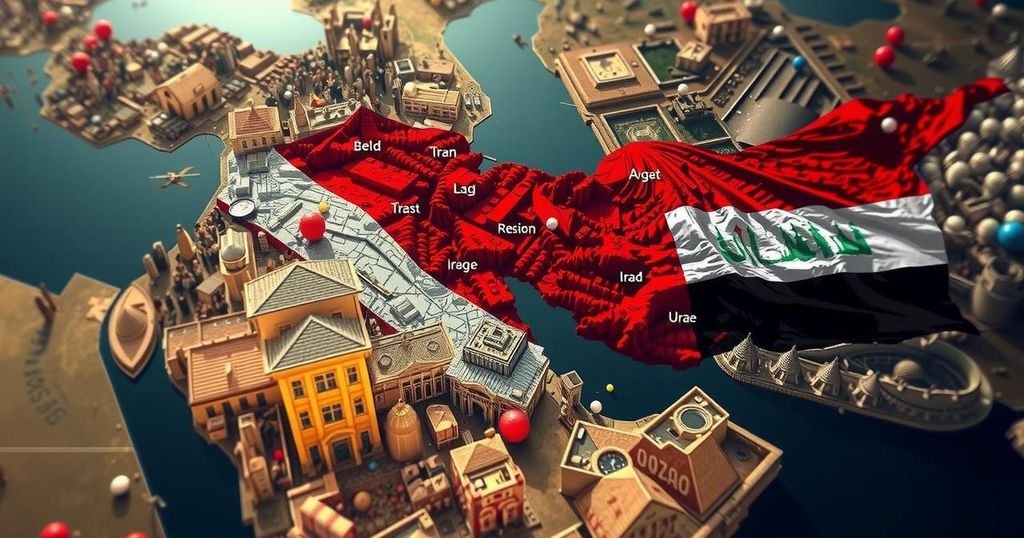The Syrian regime seeks regional support from Iraq, Iran, and the UAE after losing Aleppo to opposition forces. Facing military challenges, Assad engages in strategic discussions with these allies to bolster its territorial integrity and combat terrorism.
The Syrian regime, under President Bashar al-Assad, is intensifying its diplomatic engagements with regional allies, notably Iran, Iraq, and the UAE, in light of escalating military setbacks, including the recent loss of Aleppo. Facing strong opposition forces in northern Syria, Assad’s regime is keen on consolidating its influence in western Syria while navigating complex dynamics with the US-backed Syrian Democratic Forces (SDF) in the east and Turkey’s control in the north. The Syrian leadership has sought strategic conversations with its partners, particularly in response to intensified assaults by opposition factions.
In the wake of the offensive led by Hayat Tahrir al-Sham (HTS) against Aleppo, Assad’s outreach included discussions with Iraqi Prime Minister Mohammed Shia’ Al Sudani, who emphasized Iraq’s readiness to assist Syria in combatting terrorism. This initiative reflects Syria’s pursuit of regional support to enhance its sovereign status and territorial integrity. Moreover, Assad engaged with Sheikh Mohammed bin Zayed Al Nahyan of the UAE, who expressed solidarity with Syria’s fight against terrorism, reaffirming the UAE’s commitment to a peaceful resolution of the ongoing crisis.
The regime’s attempts to form alliances highlight its recent reconciliations with Gulf states after years of isolation following the onset of the Syrian civil war in 2011. Historically, Egypt was among the first Arab nations to re-establish relations with Assad, setting a precedent for other states to reconsider their stances towards the regime. Despite earlier reconciliations, the recent loss of Aleppo signifies growing instability within Assad’s control, prompting the regime to seek additional support from allies, underscoring its reliance on partnerships with Iran, Iraq, and Russia.
The Syrian conflict, which began in 2011, has led to significant political and territorial fragmentation across the region. Initially, the Assad regime was isolated globally due to its brutal crackdown on opposition forces. Over the years, however, shifts in regional dynamics have prompted several Arab nations, especially in the Gulf, to reassess their approach, viewing stability in Damascus as preferable to ongoing chaos. The recent developments, particularly the fall of Aleppo, stress the fragile position of the Assad regime, highlighting the necessity of rebuilding alliances to maintain its governance and military presence against entrenched opposition forces.
In summary, the Syrian regime is actively seeking to restore alliances with regional partners amid significant military challenges in northern Syria. The loss of Aleppo serves as a critical turning point, reflecting vulnerabilities that necessitate external support. This diplomatic outreach points to a broader strategy to fortify the regime’s stability through cooperation with Iraq, Iran, and UAE, as it increasingly confronts the realities of its diminished control.
Original Source: www.jpost.com







